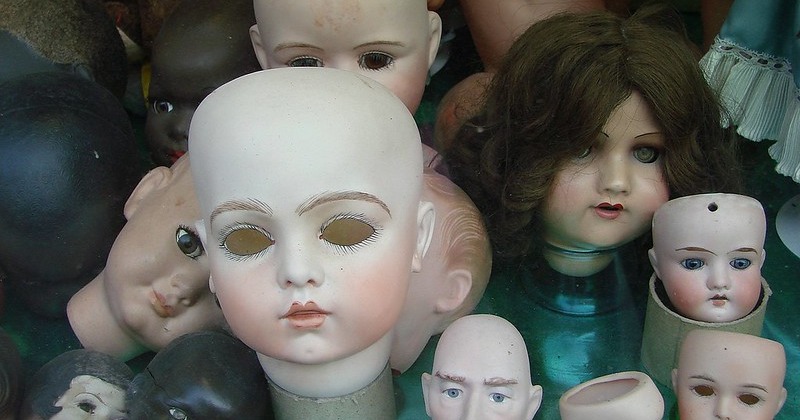If you’ve ever wondered if you have automatonophobia, here’s a test to find out.
But have you ever heard of automatonophobia? There’s a very excellent explanation for this, and you’ll be glad you didn’t.
According to VeryWell Mind, automatonophobia is “the fear of automatons, wax figures, humanoid robots, audio-animatronics, or other figures designed to represent humans.”
And once you look it up or investigate it, there is no turning back.
Imagine all the scary stories you used to tell each other at sleepovers as a kid coming to life, like the doll home in Doctor Who: Night Terrors, or, if you’re a true Disney lover, The Great Mouse Detective scene in the toy workshop.
Jump To
![]()
Do you have automatonophobia?
Rather than keeping the horrifying images to themselves, @khanya_setae, a TikToker, decided to upload photos of mannequins and dolls to make an automatonophobia exam. Watch another similar video here.
People flocked to the post, terrified of the dolls and mannequins, and if they didn’t already have automatonophobia, they do now.
But how do you tell whether you have automatonophobia, and does it affect everyone the same way? Read on to know more.
How will you know you have this phobia?

Flickr
According to VeryWell Mind, there is a spectrum, with some people being more afraid of certain types of human-like objects than others, such as dolls versus robots.
What are the symptoms?
“When confronted with the object of your fear, you may experience shaking, crying, heart palpitations, and other physical effects.” You might be unable to enter a show including automatons. If you come across one unexpectedly, you may flee, freeze in place, or even hide,” the page says.
If your fear of dolls or humanoid robots interferes with your daily life or causes you to avoid interaction with such objects, you may have diagnosable automatonophobia.
The phobia can arise as a result of trauma with such humanoid items, or it can be passed down from someone close to you who has the same fear, or it can even be inherited.
But don’t worry, because there are breathing techniques, imagery, and medicine available to help you control your fear.
Therapies such as cognitive-behavioural therapy, hypnosis, and something called systematic desensitisation – simply experiencing your fear steadily so you become less affected by it over time – are also proven to assist.
What do you think about this? Tell us in the comments.
For more trending stories, follow us on Telegram.

